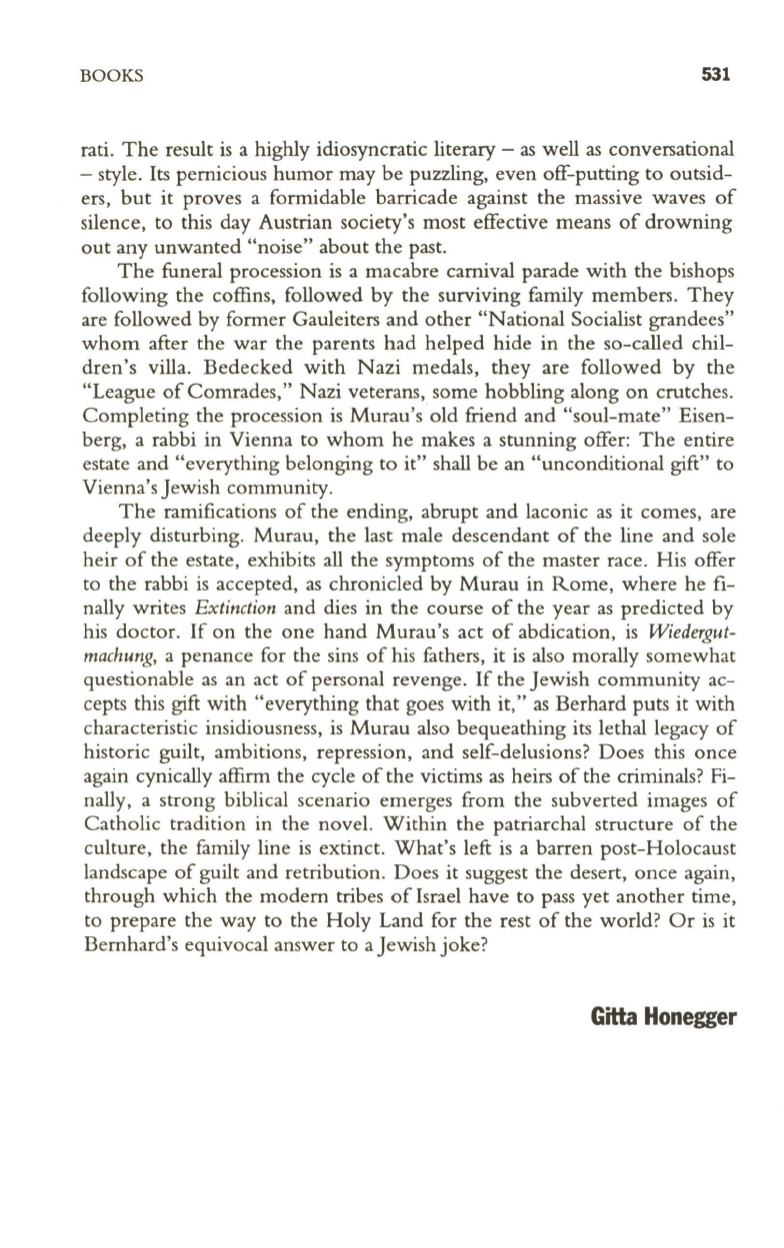
BOOKS
531
ratioThe result is a highly idiosyncratic literary - as well as conversational
- style. Its pernicious humor may be puzzling, even off-putting to outsid–
ers, but it proves a formidable barricade against the massive waves of
silence, to this day Austrian society's most effective means of drowning
out any unwanted "noise" about the past.
The funeral procession is a macabre carnival parade with the bishops
following the coffins, followed by the surviving family members. They
are followed by former Gauleiters and other "National Socialist grandees"
whom after the war the parents had helped hide in the so-called chil–
dren's villa. Bedecked with Nazi medals, they are followed by the
"League of Comrades," Nazi veterans,_some hobbling along on crutches.
Completing the procession is Murau's old friend and "soul-mate" Eisen–
berg, a rabbi in Vienna to whom he makes a stunning offer: The entire
estate and "everything belonging to it" shall be an "unconditional gift" to
Vienna's Jewish community.
The ramifications of the ending, abrupt and laconic as it comes, are
deeply disturbing. Murau, the last male descendant of the line and sole
heir of the estate, exhibits all the symptoms of the master race. His offer
to the rabbi is accepted, as chronicled by Murau in Rome, where he
fi–
nally writes
Extinction
and dies in the course of the year as predicted by
his doctor. If on the one hand Murau's act of abdication, is
Wiedergut–
machung,
a penance for the sins of his fathers, it is also morally somewhat
questionable as an act of personal revenge. If the Jewish community ac–
cepts this gift with "everything that goes with it," as Berhard puts it with
characteristic insidiousness, is Murau also bequeathing its lethal legacy of
historic guilt, ambitions, repression, and self-delusions? Does this once
again cynically affirm the cycle of the victims as heirs of the criminals?
Fi–
nally, a strong biblical scenario emerges from the subverted images of
Catholic tradition in the novel. Within the patriarchal structure of the
culture, the family line is extinct. What's left is a barren post-Holocaust
landscape of guilt and retribution. Does it suggest the desert, once again,
through which the modern tribes of Israel have to pass yet another time,
to prepare the way to the Holy Land for the rest of the world? Or is it
Bernhard's equivocal answer to a Jewish joke?
Gitta Honegger


